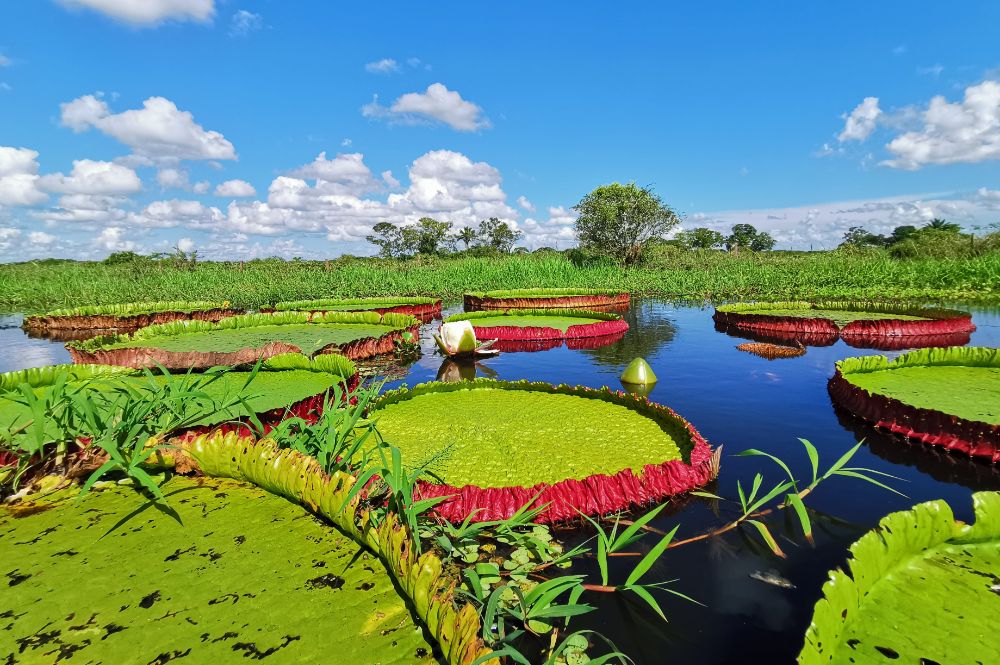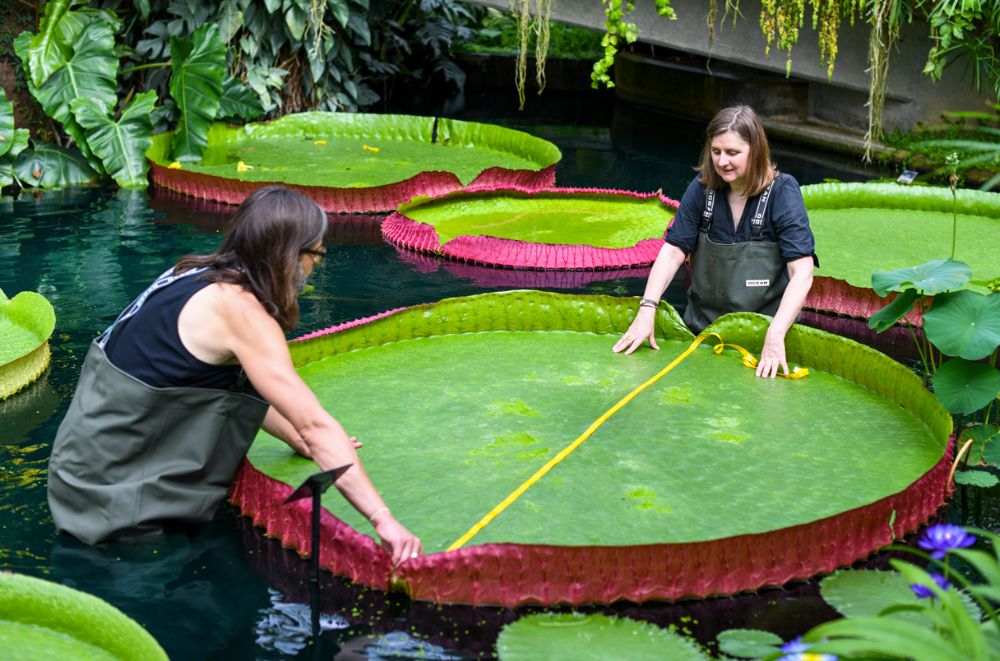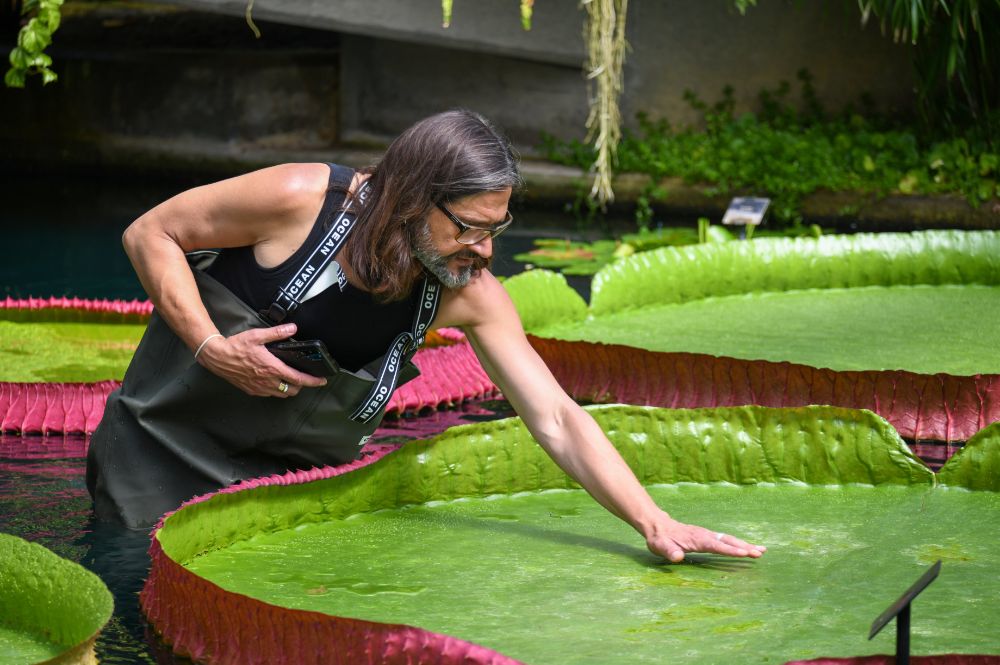When 19th-century European botanists discovered majestic water lilies with leaves larger than a ping-pong table, they first thought these South American plants were a species.
 Credit: RBG Kew
Credit: RBG Kew
See more
The ‘Victoria’ breed, named after the then British monarch, V. Amazonica and V. They soon realized that cruciana included two species. Today, researchers A discovery : There are actually three species, a specimen of the newly identified species V. boliviana growing in La Rinconada plantations in Bolivia holds the world record for leaf size at 3.2 meters wide.
Experts from the Royal Botanic Gardens, Kew, which has had a living specimen of this plant for 177 years, and the National Herbarium of Bolivia, which collected its own specimen 34 years ago, are V. They wondered if it wasn’t Amazonica. V. cruciana, the shape, color, and size of its leaves, flowers, and seeds appeared to be a hybrid of the two species, especially after a botanist documented these differences by explaining the two-day evolution of these night-blooming plants. .
 Credit: RBG Kew
Credit: RBG Kew
World’s largest water lily
Due to their size and fleshy appearance, these water lilies are very difficult to collect, preserve and study. However, the researchers were eventually able to obtain DNA samples from herbarium-preserved specimens and some new specimens of the three species. They also used published data on genetic activity of V. cruziana. Genetic analysis revealed DNA insertions and deletions in chloroplasts, establishing V. boliviana as a distinct new species, they reported July 4 in the journal Frontiers in Plant Science.
Native people have long had local names for both species Plants known, namely “auapé-yaponna” for V. amazonica, which they use to make black dye to color their hair, and “yrupé”, “yacare yrupé” or “naanók lapotó” for V. cruciana, whose seeds replace maize. It is unclear whether they recognized V. boliviana as a full species.
 Credit: RBG Kew
Credit: RBG Kew
Interesting, isn’t it?
 The Press Stories
The Press Stories

